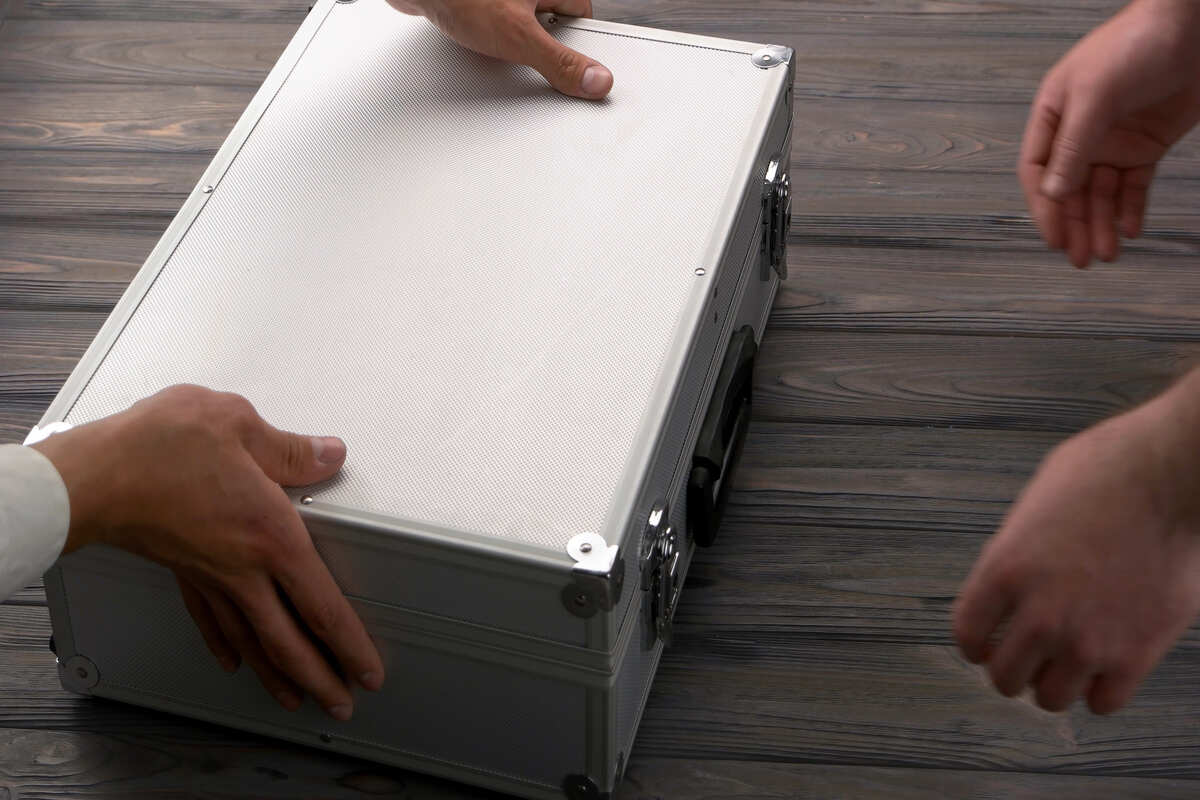Shipping High-Value Items: Best Practices & Tips


A $20,000 watch disappears somewhere between Miami and Los Angeles. The carrier says it was delivered. The customer says it wasn’t. No one’s sure where it went. Now you’re out of a luxury item, a customer, and maybe your reputation. Unfortunately, this isn’t rare. According to logistics industry reports, millions of dollars in expensive items are lost or damaged every year in transit.
The stakes are high when shipping high-value goods. You’re not just sending a package; you’re sending trust, brand reputation, and in many cases, irreplaceable, valuable assets. So how do you make sure your shipments arrive safely, on time, and fully protected? That’s what we’ll cover in this article: real-world best practices for shipping high-value items to help individuals and businesses ship safely, confidently, and without unnecessary risk.
What Counts as a High-Value Shipment?
The term “high-value items” doesn’t just apply to jewelry or gold bars. It includes anything with substantial financial, reputational, or sentimental worth – items that would be expensive, difficult, or impossible to replace.
Typical categories include:
- Luxury retail: luxury watches, designer handbags, fine jewelry, and fashion.
- Electronics: computers, smartphones, cameras, and tech devices.
- Arts and paintings: artwork, sculptures, collectibles, and photography prints.
- Medical and industrial equipment: specialist industrial equipment, surgical tools, and precision devices.
- Coins and precious stones: collectibles and high-end numismatic items.
If the total value of your package is above $1,000 or carries unique, irreplaceable worth, you’re shipping a high-value item – and standard shipping practices simply aren’t enough to protect your shipment and peace of mind. You need a smarter risk management strategy.
Common Risks of Shipping High-Value Items
Shipping is always risky, especially without insurance. Here’s what can go wrong, and often does:
- Theft and loss: Packages containing luxury items or tech are prime targets for theft during transit. Criminals can identify certain carriers or packaging clues. "Lost in transit" is also a common scenario.
- Damage: Fragile art, musical instruments, or delicate industrial equipment can be destroyed by poor packaging, vibration, or handling.
- Fraud and chargebacks: E-commerce sellers often face “item not received” claims that are nearly impossible to disprove without solid tracking and signature confirmation.
- Customs complications: For international shipments, incomplete documentation or undervaluation can lead to seizures, fines, or indefinite delays.
Standard parcel shipping isn’t built for expensive items and comes with many challenges for those shipping valuable goods. Most regular carriers treat every shipment the same, whether it’s a box of t-shirts or a $100,000 diamond necklace. That’s a big problem. High-value items require special attention for one key reason: risk exposure. They’re prime targets for theft, damage, or loss. A simple packaging mistake or tracking gap can turn into a major financial hit overnight.
When you’re shipping high-value goods, you’re not just moving boxes. You’re moving trust, reputation, and often irreplaceable assets. This is why it pays (literally) to work with transport companies and logistics partners that specialize in secure shipping methods, offer comprehensive shipping insurance, and understand signature requirements and real-time tracking inside out.
Safe Packaging: Your First Line of Defense
Even the best carrier can’t save a poorly packed shipment. The right packaging materials and methods are your first line of defense against damage or tampering. If you’re shipping fragile or delicate goods, don’t cut corners here. The best way to ship high-value items is to:
- Use double-boxing. Place your item in a small, well-cushioned box, then inside a larger one for extra protection.
- Cushion generously. Use bubble wrap, foam inserts, or air pillows; never newspaper or loose filler.
- Seal securely. Use tamper-evident seals and heavy-duty tape.
- Stay discreet. Don’t label boxes with words like “jewelry” or “electronics” to avoid drawing attention to expensive items. Discreet shipping is the smartest way to go.
- Photograph everything. Document your packaging and labeling before shipment.
Pro tip: For delicate or irregularly shaped items like art and paintings or musical instruments, use custom-fit foam or crates and include shock and tilt indicators on the outside of the package.
Avoid cheap boxes or reused materials. They weaken structural integrity and make your shipment vulnerable. Avoid overpacking (which increases pressure) or underpacking (which leaves items vulnerable to impact).
Documentation and Tracking: Build a Paper Trail
Shipping expensive items isn’t just about packaging protection. Having every step documented will help in case of insurance claims or damage disputes. Here’s how to build a strong trail:
- Require signature verification or even in-person delivery for any shipment of value. Signature requirements ensure the package reaches the correct recipient and creates a verified paper trail in case of disputes. You can even go further:
- Adult signature required options for delivery proof
- Designate specific individuals for pickup.
- For business deliveries, require on-site manager or owner signatures.
- Keep copies of invoices, serial numbers, and photographs of the original condition of your items.
- Use tamper-proof seals to prove integrity.
- When every handoff is recorded, accountability is crystal clear.
Choosing the Right Carrier and Shipping Service

The most important decision: who handles your shipment. Not all transport companies or reputable carriers are built for high-value shipping. Some are built for volume, and if you’re shipping something priceless, you need a reputable carrier, one that understands the specific risks associated with your goods. Before you hand over your goods, ask these questions:
- What’s their maximum liability for loss or damage?
- Do they offer insurance coverage or only a carrier-provided declared value?
- Can they accommodate signature requirements and real-time tracking?
- Do they specialize in secure shipping methods for luxury or delicate items?
Cheaper shipping rates aren’t worth the risk if it means compromising safety. Look for a logistics partner that offers:
- Secure vehicles and facilities.
- Strict background checks on staff.
- Chain-of-custody protocols.
- Real-time & advanced tracking systems.
- Full insurance coverage specifically designed for high-value shipments.
A specialized global carrier like UNIVAL Logistics works with luxury jewelry, fine arts, electrical equipment, and even medical devices every single day. This level of experience matters when the stakes are high.
Understand Your Insurance Options
If you’re shipping high-value items, shipping insurance isn’t optional, but essential, yet something that too many shippers overlook. Many assume that carrier-provided declared value is enough. But in most cases, it’s not. Declared value isn’t the same as full insurance - it only increases a carrier’s liability slightly, and it often excludes theft, natural disasters, and mishandling.
Most carriers offer limited protection that caps at a few hundred dollars per shipment. Always verify whether you’re paying for standard shipping insurance or full-value coverage. The difference can mean thousands of dollars. Specialized providers like UNIVAL Logistics offer full-value shipping insurance, covering the actual value of your shipment in case of loss or damage.
Our insurance options include insured shipping and third-party insurance with coverage far beyond what you’d get from standard carriers, providing solutions that actually protect your investment.
International Shipping Tips
Global shipments come with extra complexity and more potential risk. Here’s how to stay ahead and ensure secure cross-border transport:
- Declare true value. Never under-declare; it can void insurance or trigger customs red flags.
- Know your duties and tariffs.
- Choose trusted international carriers like UNIVAL and customs brokers
- Make sure your insurance coverage extends across borders.
- Double-check documentation – missing forms cause most international delays.
Communicate With Your Logistics Partner
Shipping doesn’t end when you hand off your parcel. The best results come from clear communication between you and your logistics team.
Share details like:
- Exact item descriptions and values.
- Handling instructions.
- Insurance needs.
- Delivery deadlines.
- Any unique security requirements.
A good logistics company will listen, adjust, and guide you through the safest route—literally and figuratively.
What to Do If Something Goes Wrong
Even with all precautions, issues can happen. Here’s what to do.
- Stay calm, act quickly. Contact your carrier immediately to report loss or damage.
- Contact your insurer. File an insurance claim right away.
- Gather evidence. Provide invoices, serial numbers, photos, and tracking details.
- Keep communication open. If you’re a seller, update your customer proactively.
- Document everything. Every phone call, email, or update strengthens your claim.
Having the right insurance options and partners in place before anything goes wrong is what separates a small setback from a disaster.
Why UNIVAL Logistics Is the Smart Choice When the Stakes Are High
When it comes to shipping high-value items, you can’t afford to gamble. That’s where UNIVAL Logistics comes in – a trusted name in global secured and insured shipping solutions. We offer full-value insurance coverage, specialist handling, and secure shipping methods that standard providers simply can’t match.
Reliable Transportation and Vehicles
UNIVAL understands that your most high-value goods also come with the highest risks. That’s why we provide secure warehousing and move your shipments by ground, air, or sea — domestic and international – timely and securely. Each dedicated vehicle is managed by trusted personnel and optimized for cost-efficient, safe delivery.
We will determine the best way to ship high-value items, including choosing the quickest and safest route. Need to save on shipping rates? We can consolidate your goods in larger vehicles to lower costs without cutting corners on protection.
Secure Courier Tracking Systems
Would you send a $50,000 item into the world without knowing where it is? Of course not. We believe transparency isn’t a luxury, but part of secure shipping. That's why UNIVAL integrates intelligent, advanced tracking systems across our entire network – giving clients 24/7 visibility. The system updates in real time, so you’re never left guessing.
You’ll always know exactly where your shipment is at each leg of the journey, not just an “estimated delivery window.” E-commerce clients can even integrate tracking through our API for seamless updates using our third-party logistics (3PL) platform.
Full-Value Shipping Insurance
UNIVAL offers full-value shipping insurance for both domestic and international shipments – up to $150,000 domestically and $100,000 internationally. Whether you’re shipping artwork, precious stones, or specialist industrial equipment, our shipping insurance for high-value items covers the actual value of your goods and guarantees peace of mind and protection from loss, theft, and damage.
Because in logistics, accidents happen, from rough handling to bad weather, but your protection should never depend on luck. And if the worst happens? Their insurance claims process is fast, straightforward, and supported by real humans, not automated systems.
Lower Risk, Lower Cost
UNIVAL’s mission is simple: reduce risk, lower costs, and deliver securely & timely. We combine specialized expertise and modern logistics solutions to ensure your package arrives exactly where it should – intact, on time, and insured.
If you’re serious about protecting your valuable assets, UNIVAL Logistics is the partner you want in your corner, trusted by industries where mistakes aren’t an option. We understand that each industry has unique challenges and tailor our services accordingly.
Don't Gable When Shipping High-Value Items: Protect Every Parcel
Shipping high-value items isn’t just about getting something from Point A to Point B. When the value of your shipment is also measured in trust, reputation, or craftsmanship, there’s no room for guesswork. From choosing the right packaging materials and secure shipping methods to verifying your insurance coverage and selecting a reputable carrier, every decision counts. The cost of cutting corners?
Damaged goods, lost customers, and financial and reputational harm that’s hard to recover from. That’s why businesses, collectors, and creators around the globe turn to UNIVAL Logistics – a logistics partner in secure, insured, and reliable delivery for high-value goods. We don’t just deliver parcels; we deliver peace of mind. So, before you send out your next shipment, ask yourself: Are your high-value items truly protected? If not, it’s time to ship smarter.
Partner with UNIVAL Logistics to protect what matters most, the secure delivery service trusted by industries around the world to move their most valuable cargo safely, efficiently, and insured from start to finish, wherever it’s headed. Get in touch anytime to see how we can help.
Latest blogs
Dimensional (DIM) Weight in Shipping: What It Is & How It’s Calculated
Wed, Jan 14th 2026, 07:11
 Continue Reading →
Continue Reading →
The Rise of Online Luxury Sales and What It Means for Jeweler
Wed, Nov 19th 2025, 02:32
 Continue Reading →
Continue Reading →
Categories
default
